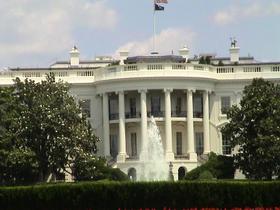Federalism

- White House, Washington DC, USA (photo) (Photo: www.rosenblumtv.com/?p=2795)
A system of government in which state power is divided between a central federal government and provincial or regional levels, as in Germany, Austria, the USA, Canada, Australia, India, Nigeria and many other countries.
Federations contrast with unitary states, such as France, Denmark and Norway, where power is not divided between two levels. A part of Federalism is the idea that cross border issues shall be dealt with just as democratically as national issues in parliamentary democracies.
As in the USA, a federal democracy is generally run by a two-chamber governing body. Under this model one chamber represents the citizens within the participating states, the number of representatives for each state is in proportion to the size of the population. The other chamber represents the participating states, with the same number of representatives for each despite their differing sizes – as in the USA, where there are two senators per state.
Federalism in Europe
Most Euro-federalists would like to see the EU Parliament function like the US House of Representatives, with the people of each state represented broadly in accordance with their number; the Council of Ministers would become the equivalent of the US Senate, with each state having the same or a similar number of representatives. In the American Senate all states are equal. In the House of Representatives the electorates are equal. In the EU institutions the smaller Member States are over- represented in the EU Parliament, but equally represented in the Council of Ministers.
Federalist ideals are based on the idea that citizens of the EU could be seen as a people endowed with a sense of community comparable to that found in national states. They therefore believe that the EU can become a democracy comparable to the USA, Germany or other national democracies, as long as it has similar governmental institutions.
Critics of Euro-federalism deny this. They hold that citizens of the EU can never be a people comparable to a national community and that to construct institutions at EU level similar to the national level will not deal with the problem of the EU’s democratic deficit. They stress that citizens are primarily loyal to and identify themselves with their own country or nation – not the EU.
Many critics champion “inter-governmental” modes of international co-operation, in which states are all sovereign despite the inequalities between them and each state has one vote – as in the UN General Assembly for example – regardless of whether they are big or small, powerful or weak, rich or poor. The normal principle for international co-operation is one state one vote.
